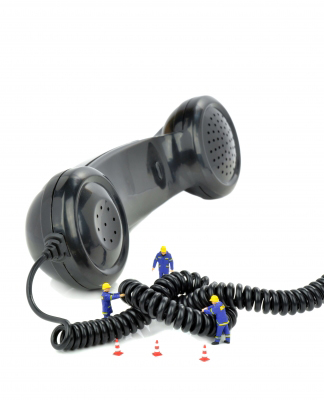Christ-Centered Communication: Demon Dialogues PT 1 of 7
Benjamin Deu
Demon Dialogues:
Couples in the throes of marital strife often find themselves repeating the same harmful, unproductive behaviors because they no longer have any idea how else to solve their problems. They’re so hurt and overwhelmed by the discord consuming their marriage, they lose all ability to reasonably resolve conflict.
“Demon Dialogues” is a term therapist Dr. Sue Johnson created for this three-phase, self-destructive system to which many couples succumb. It begins with each partner trying to address marital problems by accusing the other of mistreatment (“Find the Bad Guy”); leads to a feedback loop of couples desperately trying to interact with each other, but in ways so negative they result in each partner feeding off each others’ attacks (“Protest Polka”); and finally, each partner emotionally withdrawing from the conflict, refusing to make any effort to salvage the marital disaster, and eventually filing for divorce (“Freeze and Flee”).
It’s Not Me; It’s You
Jane and Edward have been married for eight years. He works full-time, while she stays home to care for their two children of 5 and 3. During the session, an argument arises over what seems to have driven them to therapy– parenting discrepancies.
“You come down too hard on them,” Edward snaps. “They’re just kids.”
“Well, you don’t come down on them at all,” Jane retorts. “Maybe if you’d help, I wouldn’t have to be the bad guy all the time.”
Their back-and-forth bickering epitomizes Johnson’s “Find the Bad Guy” phase of “Demon Dialogues.” The two have become so consumed with being “right,” and “winning” they’re no longer able to productively address how to work together to raise their children. It is a self-defense technique that has mutated into an offensive attack on their partner. As Johnson describes in her book Hold Me Tight, it’s often instigated when one partner feels vulnerable or that they’ve been injured by the other. Eventually, rather than snapping back each time their partner cuts them, they begin to attack out of apprehension. Their defenses are so keyed up, they respond to their partner’s offenses before they’ve even committed them.
How to Stop Attacking Each Other
 Bother partners need to step back and assess the whole picture. The only way a couple can stop this cycle is if they accept that neither party is the “bad guy,” and instead focus on the real enemy– the destructive, accusatory cycle in which they find themselves. The following is a helpful verse to bear in mind for dealing with each of these toxic phases–
Bother partners need to step back and assess the whole picture. The only way a couple can stop this cycle is if they accept that neither party is the “bad guy,” and instead focus on the real enemy– the destructive, accusatory cycle in which they find themselves. The following is a helpful verse to bear in mind for dealing with each of these toxic phases–
Let no corrupting talk come out of your mouths, but only such as is good for building up, as fits the occasion, that it may give grace to those who hear. And do not grieve the Holy Spirit of God, by whom you were sealed for the day of redemption. Let all bitterness and wrath and anger and clamor and slander be put away from you, along with all malice. Be kind to one another, tenderhearted, forgiving one another, as God in Christ forgave you. (Ephesians 4:29-32 ESV)
How to prepare for future fights
Johnson suggests preparing to defuse future fights by remembering a time when you and your partner got caught up in a bout of “Find the Bad Guy”–
- What ammunition did you use to “win?” Of what did you accuse your partner, and what retorts do you most often employ when you feel attacked?
- After the fight, how did you feel about yourself, your partner, and the connection between you?
- Were you able to discuss the fight afterward?
- If not, how did you deal with your mutual loss of safety?
Next time…
Instead of carrying out the sparring match through to its ugly conclusion, recognize what you’re doing and stop. Take a breath and then discuss your disagreement without trying to determine who’s at fault.
*Adapted from Part Two of Dr. Sue Johnson’s book Hold Me Tight (Johnson 73, 74)Images cc: freedigitalphotos.com -“Communication Problems” by Grant Cochrane




